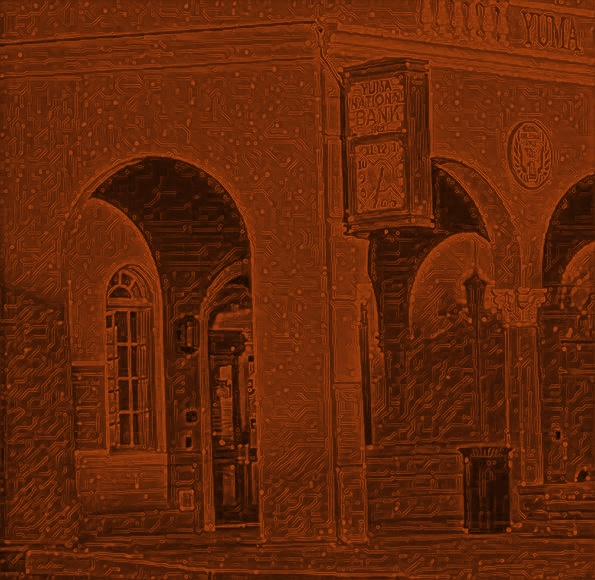

I am spending some cycles on my algorithmic rotoscope work. Which is basically a stationary exercise bicycle for my learning about what is, and what is not machine learning. I am using it to help me understand and tell stories about machine learning by creating images using machine learning that I can use in my machine learning storytelling. Picture a bunch of machine learning gears all working together to help make sense of what I'm doing, and WTF I am talking about.
As I'm writing a story on how image style transfer machine learning could be put to use by libraries, museums, and collection curators, I'm reminded of what a con machine learning will be in the future, and be a vehicle for the extraction of value and outright theft. My image style transfer work is just one tiny slice of this pie. I am browsing through the art collections of museums, finding images that have meaning and value, and then I'm firing up an AWS instance that costs me $1 per hour to run, pointing it at this image, and extracting the style, text, color, and other characteristics. I take what I extracted from a machine learning training session, and package up into a machine learning model, that I can use in a variety of algorithmic objectives I have.
I didn't learn anything about the work of art. I basically took a copy of its likeness and features. Kind of like the old Indian chief would say to the photographer in the 19th century when they'd take his photo. I'm not just taking a digital copy of this image. I'm taking a digital copy of the essence of this image. Now I can take this essence and apply in an Instagram-like application, transferring the essence of the image to any new photo the end-user desires. Is this theft? Do I own the owner of the image anything? I'm guessing it depends on the licensing of the image I used in the image style transfer model--which is why I tend to use openly license photos. I'll have to learn more about copyright and see if there are any algorithmic machine learning precedents to be had.
My theft example in this story is just low-level algorithmic art essence theft. However, this same approach will play out across all sectors. A company will approach another company telling them they have this amazing machine learning voodoo, and if we run against your data, content, and media, it will tell you exactly what you need to know, give you the awareness of a deity. Oh, and thank you for giving me access to all your data, content, and media, it has significantly increased the value of my machine learning models--something that might not be expressed in our business agreement. This type of business model is above your pay grade, and operating on a different plane of existence.
Machine learning has a number of valuable use, with some very interesting advancements having been made in recent years, notably around Tensorflow. Machine learning doesn't have me concerned. It is the investment behind machine learning, and the less than ethical approaches behind some machine learning companies I am watching, and their tendencies towards making wild claims about what machine learning can do. Machine learning will be the trojan horse for this latest wave of artificial intelligence snake oil salesman. All I am saying is, that you should be thoughtful about what machine learning solutions you connect to your backend, and when possible make sure you are just connecting them to a sandboxed, special version of your world that won't actually do any damage when things go south.
